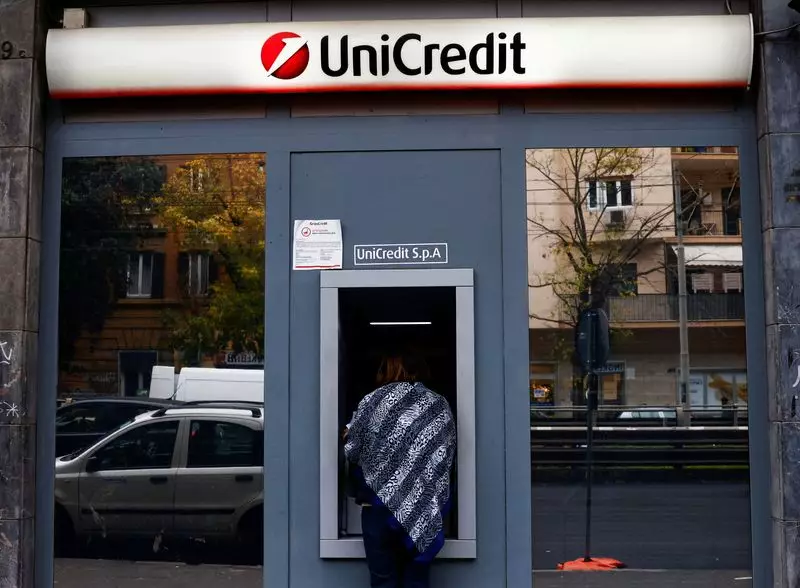In a significant move within the Italian banking sector, UniCredit has formally submitted a buyout proposal for Banco BPM to the nation’s market regulator. This development marks a pivotal moment for UniCredit, which is helmed by CEO Andrea Orcel, known for his adept negotiation skills in mergers and acquisitions. The all-share offer, valued at approximately €10 billion ($10.5 billion), was initially announced on November 25 and is now binding, providing a structured price floor for the transaction.
Investors seem to respond favorably to the bid, with Banco BPM’s share price closing at €7.846, significantly above the proposed offer of €6.657 per share. This discrepancy suggests that market participants may be anticipating enhancements to UniCredit’s initial proposal or even alternative offers, reflecting a broader expectation of competitive bidding in the sector. Orcel asserts that the terms of the offer are fair, emphasizing that any finalized transaction must create actual shareholder value that exceeds the returns obtainable through parallel strategies, such as share repurchase programs.
Orcel’s experience in M&A suggests he is acutely aware of the necessity to ensure that deals resonate positively with stakeholders. His assertion that a merger must yield at least a 15% return underscores a commitment to rigorous financial metrics and responsible corporate governance. Such sweeping requirements are critical, considering the growing scrutiny from stakeholders who want to avoid unfavorable investments.
Orcel has been cautious in his pursuits, having previously shied away from acquiring Banco BPM due to the elevated premiums reflected in its stock price. However, prompted by an increasing trend of consolidation within the Italian banking landscape, he appears to have recalibrated his approach. The imperative for scaling and strengthening market position in an increasingly competitive environment can catalyze urgency for mergers, even if it contradicts initial strategies.
In his comments, Orcel highlights the resilience and diversified nature of UniCredit, clarifying that BPM’s shareholders may ultimately be better off aligned with UniCredit, particularly as the banking sector faces challenging economic conditions. This narrative not only seeks to reassure prospective investors of the merits of the transaction but also positions UniCredit as a more favorable long-term option in a volatile market.
Currently, UniCredit’s offer comprises an exchange of 175 newly issued shares for every 1,000 shares held by Banco BPM investors, translating to a modest premium of 0.5% relative to the pre-bid share price of BPM. Yet, Orcel contends that this offer represents a 15% premium compared to BPM’s value prior to their acquisition of Anima Holding. This method of calculating value is crucial, as it emphasizes the importance of accurate timing and corporate actions that can sway market valuations significantly.
Notably, UniCredit has reached out to Crédit Agricole, Banco BPM’s largest shareholder, indicating an intent to forge collaborative partnerships. With Crédit Agricole actively increasing its stake in Banco BPM, this strategic dialogue is not just a mere formal gesture; it hints at a potential realignment of interests that could yield operational synergies while creating a more fortified competitive posture against other banking entities.
The path toward the successful acquisition of Banco BPM hinges on UniCredit’s ability to navigate the complexities of market sentiment, regulatory scrutiny, and stakeholder interests. As Orcel continues engaging with key players, his focus on maintaining a rigorous approach to M&A becomes clear. The outcome of this deal could significantly reshape the Italian banking ecosystem.
UniCredit’s strategic bid exemplifies how adaptation and tactical foresight within the framework of mergers and acquisitions can lead to transformative opportunities in the banking sector. As the landscape evolves, the imperative for banks to consolidate to remain resilient and competitive cannot be overstated. The future of UniCredit and Banco BPM will likely reflect broader trends, indicating a shift towards greater synergy and economic efficiency in the industry.

